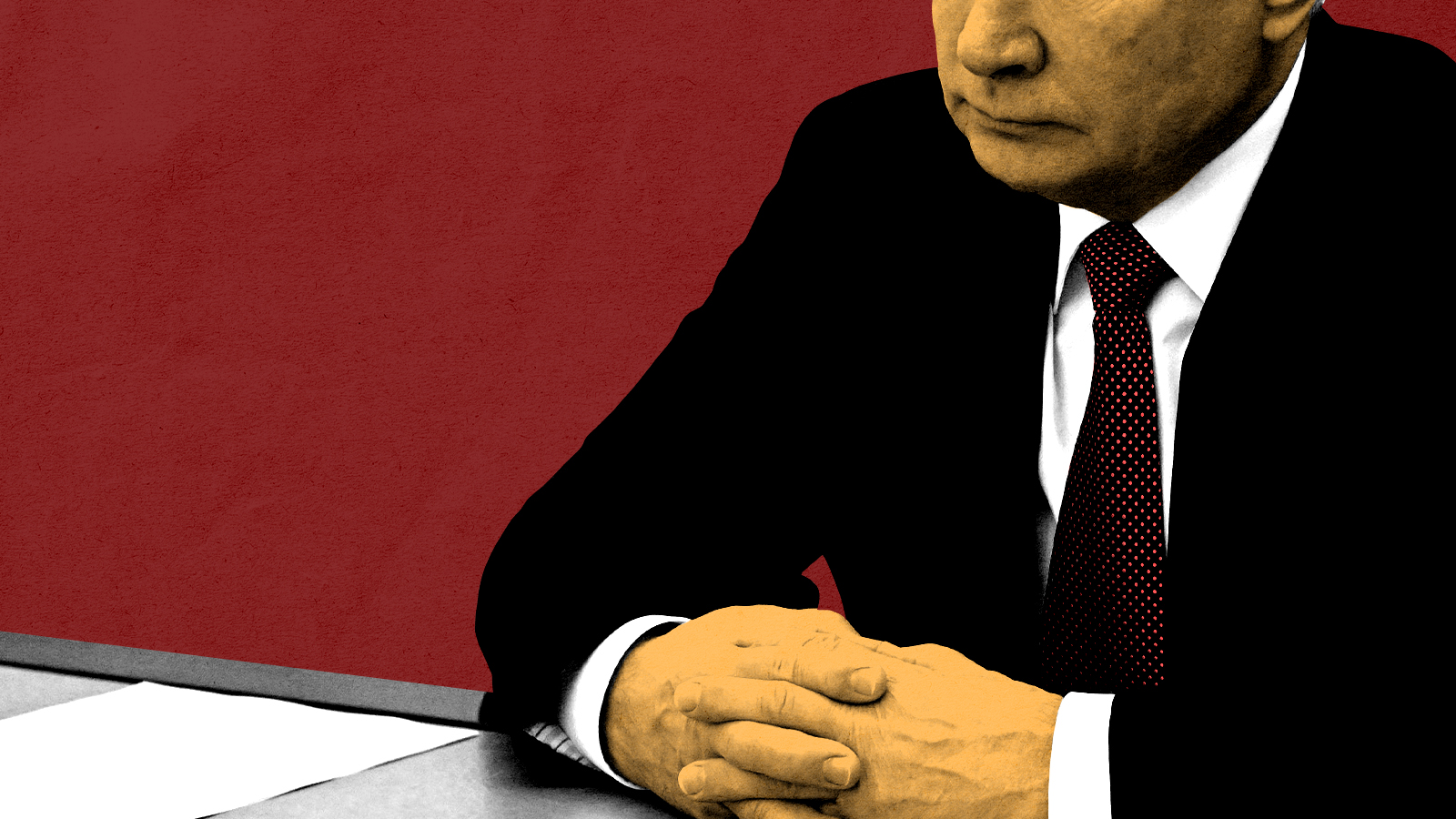Will Putin pay for a limited war?


A free daily email with the biggest news stories of the day – and the best features from TheWeek.com
You are now subscribed
Your newsletter sign-up was successful
Late Monday, Russian President Vladimir Putin ordered military forces into eastern Ukraine after delivering a genuinely deranged history lesson that blamed Soviet leaders Lenin, Stalin, and Khrushchev for creating Ukraine and claimed that the country has "never had a tradition of genuine statehood."
It is still unclear what Putin's war aims really are. Yesterday he announced the recognition of the Donetsk and Luhansk People's Republics, putting those territories in legal and juridical limbo. Few countries outside of Russia's immediate orbit will recognize or establish diplomatic relations with these new states.
The lingering question, of course, is if Russia will actually stop at the current lines of control between Ukrainian and separatist forces. If it does, the Kremlin might ultimately get away with this unprovoked aggression.
The Week
Escape your echo chamber. Get the facts behind the news, plus analysis from multiple perspectives.

Sign up for The Week's Free Newsletters
From our morning news briefing to a weekly Good News Newsletter, get the best of The Week delivered directly to your inbox.
From our morning news briefing to a weekly Good News Newsletter, get the best of The Week delivered directly to your inbox.
The full conquest of Ukraine would, on the other hand, be rightly seen as a truly disjunctive event. The sanctions that the U.S. and its allies are preparing will be much easier to sustain in the long run if Putin eliminates a sovereign state from the international system by force of arms — something that has been a rarity since the Second World War. The resulting economic and diplomatic isolation could be devastating for Moscow.
But there is precedent for this kind of limited territorial grab to succeed. After the fall of the Soviet Union, Russia helped create and protect the breakaway region of Transnistria in Moldova, and then did so again with the Abkhazia and South Ossetia regions in Georgia, all of which have created parallel institutions of governance. This is a playbook that Russia has now run repeatedly, and no one has yet drawn a line in the sand.
If there continues to be a country called Ukraine with its capital in Kyiv, it is much likelier that the international community will have difficulty maintaining the solidarity and vigilance required to impose crippling sanctions on a major world power, especially given European dependence on Russian natural gas. That is a pity, because these kinds of flare-ups will not stop until Putin's irredentist campaign is finished.
A free daily email with the biggest news stories of the day – and the best features from TheWeek.com
David Faris is a professor of political science at Roosevelt University and the author of "It's Time to Fight Dirty: How Democrats Can Build a Lasting Majority in American Politics." He's a frequent contributor to Newsweek and Slate, and his work has appeared in The Washington Post, The New Republic and The Nation, among others.
